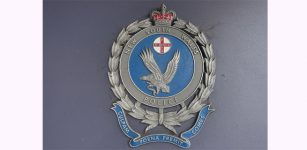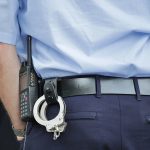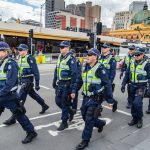Authorising the Unlawful: The Powers of Undercover Police in NSW

An unidentified man was sentenced to more than 10 years in prison last February for his part in the robbery of an Armaguard truck outside a Sydney shopping centre back in March 2013. However, police were initially concerned they didn’t have enough evidence to see him convicted.
When the man turned up to Merrylands police station later that year as part of his bail conditions after being charged with the armed robbery, officers asked him to wait in a police cell, whilst they fixed a problem with their computer.
The man then proceeded to tell two men in the cell about the arsenal of weapons he had at his house. He also bragged about stealing the car used in the robbery, complained that the guards wouldn’t open the truck during the heist and even confessed to another armed holdup.
But unbeknownst to the offender, the two men he was speaking with were actually undercover police officers, who had been placed in the cell to gather the extra information required to pin the crime on him.
Covert police powers
The police powers to carry out undercover operations in NSW are contained in the Law Enforcement (Controlled Operations) Act 1997 (the Act). The legislation allows specific NSW law enforcement agencies to carry out controlled operations in situations where conventional measures won’t work.
Section 3 of the Act defines a controlled operation as an operation conducted for the purposes of obtaining evidence of criminal or corrupt activity, or arresting a person involved in such activity, or frustrating this type of activity, or facilitating the achievement of any of these purposes.
Controlled operations are carried out by undercover operatives – either police or officials from other law enforcement agencies – acting under assumed identities. And, these operations can also involve civilian participants.
During the course of controlled operations, undercover operatives are able to engage in activities that would otherwise be unlawful. Section 16 of the Act provides that any activity that is authorised to be carried out as part of an operation “does not constitute an offence or corrupt conduct.”
Authorised agencies
Law enforcement agencies that are empowered to authorise and carry out controlled operations are the NSW Police Force, the Independent Commission Against Corruption, the NSW Crime Commission and the Law Enforcement Conduct Commission (LECC).
Certain federal agencies can also be afforded these powers. They include the Australian federal police (AFP), the Australian Crime Commission and the Commonwealth Department of Immigration and Border Protection.
The chief executive officer of each of these agencies is responsible for giving approval for a controlled operation to take place.
Authorising the unlawful
The 2011 Ministry of Police and Emergency Services review of the Act outlined that the legislation was introduced following a Wood Royal Commission into the NSW Police Service recommendation that related to the High Court of Australia 1995 Ridgeway ruling.
The Ridgeway judgement concerned a joint AFP and Malaysian police drug trafficking investigation, which involved police arranging a controlled importation and delivery of heroin to Australia for the purposes of apprehending Ridgeway.
AFP officers apprehended Ridgeway with 203 grams of heroin and he was subsequently convicted by the South Australian District Court. But, on appeal, the High Court ruled the police heroin importation was illegal and therefore the evidence against Ridgeway should be excluded.
So, to ensure that law enforcement can engage in unlawful activities as part of investigations into criminal enterprises the NSW parliament passed the Act, which came into effect in March 1998. And today, it’s coupled with the provisions of the Law Enforcement (Controlled Operations) Regulation 2017.
Recent use of controlled operations
Once NSW authorities began authorising the use of controlled operations, the NSW Ombudsman police compliance branch was tasked with monitoring them. But, this responsibility has now been handed over to the LECC.
The LECC began its operations in July last year. The new police watchdog replaced the Police Integrity Commission, the police division of the NSW Ombudsman and the Inspector of the NSW Crime Commission.
As part of its functions, the Office of the Inspector of the LECC now delivers an annual report on the functioning of the Act. The 2016-17 Annual Report on the Act outlines that over that period 412 controlled operations were authorised, all of which involved NSW police.
These 400-odd operations involved a total of 12,581 officers and 310 civilian participants. And of the total operations only 254 were completed during that year.
The majority are drug-related
Of the total number of operations that were initiated in 2016-17, 61 percent involved drug offences, 12 percent involved firearm offences, 10 percent related to both drug and firearm offences and a little over 4 percent were concerned with murder-related offences.
NSW Greens MLC David Shoebridge remarked in parliament in February 2012 that it was very clear that the majority of controlled operations in this state target illegal drug supply.
“It is a timely reminder of the extraordinary public resources we spend on the ever-increasing war on drugs,” Mr Shoebridge said. And he went onto suggest that alternative approaches to dealing with illegal drugs should be considered.
Illicit drug investigations
In NSW, investigations into illegal drugs often involve the use of undercover officers who can encourage a person to commit an offence or participate in illegal activity. And there’s no substantive defence of entrapment in state laws.
This means that if an undercover officer has encouraged an individual to supply them with drugs, this cannot be used as a mitigating factor in sentencing. This is just one example of the unlawful conduct a law enforcement officer can participate in as part of a controlled operation.
Undercover operatives accused of trafficking
One such drug-related controlled operation involved a cross-border NSW-ACT investigation in mid-2016. Over a two month period, an undercover police officer placed three separate orders for sizable amounts of methamphetamines with Queanbeyan man Zlatko Mileski.
Following Mileski’s arrest, his lawyer accused the undercover officer of trafficking drugs over the NSW-ACT border, as the officer had driven the dealer across the state line to facilitate the multiple drug deals. And he further claimed his client shouldn’t have been facing charges in NSW.
After some initial contention, it was agreed that Mileski had trafficked in 274 grams of ice. And he subsequently pleaded guilty to supplying a commercial quantity of a prohibited drug in the Queanbeyan Local Court in August last year.








